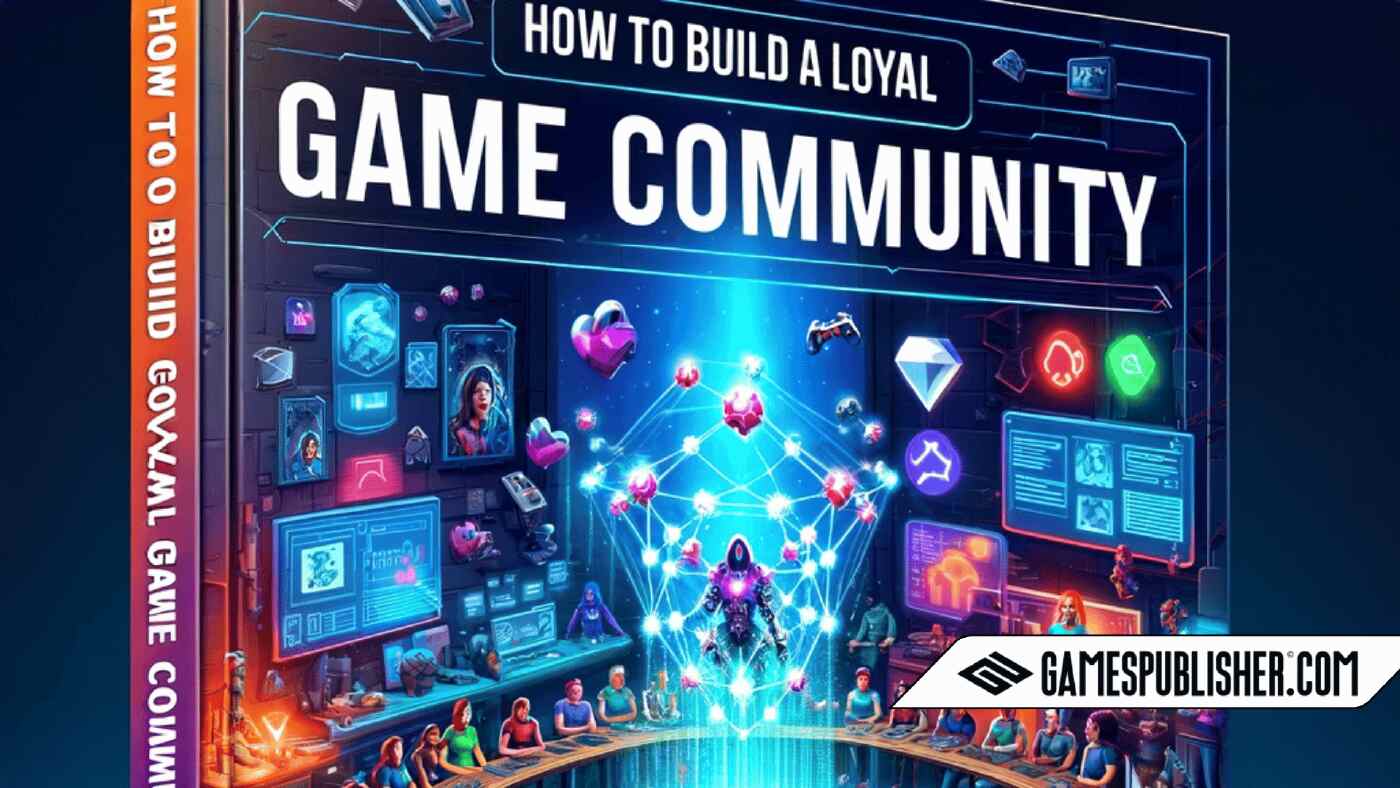How has the concept of community revolutionized video gaming?
No longer confined to solitary play, it has expanded into a vibrant, interactive sphere that significantly enhances player experiences. This shift towards a more social gaming environment not only enriches the gaming experience but also creates a powerful platform for developers to engage with users, gather feedback, and promote longevity in their games.
Today, the impact of these communities is more profound than ever, influencing everything from game development to post-launch support.
Understanding Game Communities
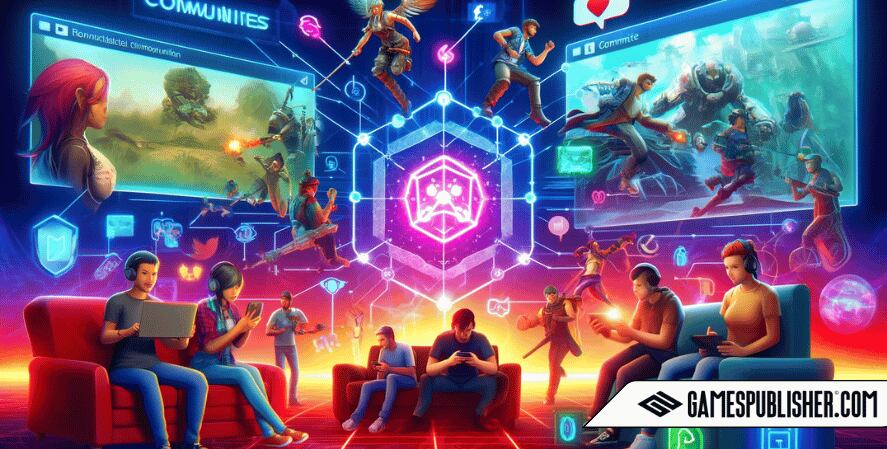
Definition and Types
At its core, a game community consists of players and fans connected by their common interest in a particular game or series of games. These communities can form on various platforms, including:
- Social Media: Serves a broad spectrum of gamers, from casual to dedicated players, providing a space for sharing content, updates, and community engagement.
- Dedicated Online Forums: Cater primarily to hardcore gamers who seek in-depth discussions, strategy sharing, and community-driven content.
- In-Game Interaction Systems: Enhance the gaming experience by enabling direct communication and interaction among players within the game environment, appealing to both casual and serious gamers.
- Mobile Apps: Target casual gamers, offering easy access and social gaming opportunities through smartphones and tablets, often integrating with social media for expanded connectivity.
Benefits
Game communities offer numerous benefits that enhance the gaming experience. For players, they provide a space for networking, skill enhancement through peer learning, and a competitive environment.
They also facilitate direct communication channels for game recommendations, bug reporting, and valuable feedback, which are crucial for developers seeking to improve their games or develop new ones that align with player expectations.
Building Your Game Community
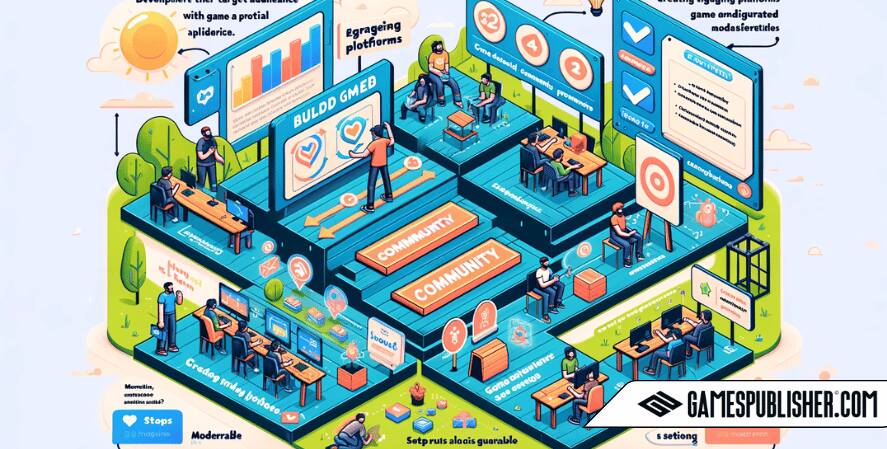
Identifying Your Target Audience
Understanding who plays your games is the first step in forming a community.
This knowledge helps tailor your community-building efforts to match the preferences and behaviors of your audience, ensuring that the platforms and content you develop resonate with them.
Creating Engaging Platforms
To foster a vibrant community, developers must provide accessible and engaging platforms for interaction.
This can include integrating forums directly into the game, utilizing popular social media platforms, and developing standalone community apps that offer unique content and interaction opportunities.
Setting Rules and Guidelines
Establishing clear community guidelines is essential to ensure a respectful and positive interaction space.
These rules help manage player expectations and provide a framework for acceptable behavior.
Moderation and Safety
Effective moderation and robust safety policies are critical to maintain the integrity of the community.
Appointing knowledgeable and fair moderators and implementing comprehensive policies help safeguard members and promote a healthy gaming environment.
Growing Your Community
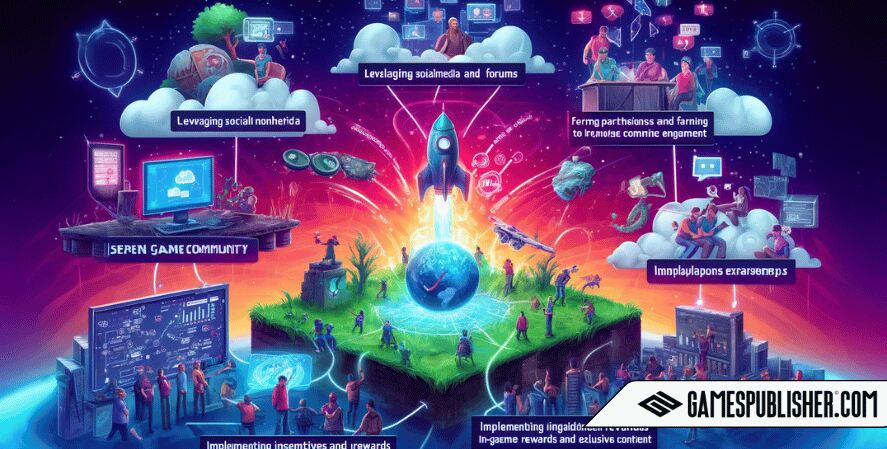
Leveraging Social Media and Forums
Social media and gaming forums are powerful tools for attracting new community members. Regular updates, engaging content, and active participation by community managers can help keep the community vibrant and growing.
Influencers and Partnerships
Collaborating with influencers and other gaming communities can significantly boost your community’s visibility and engagement. These partnerships can provide a mutually beneficial exchange of content and exposure, drawing more players into your community.
Incentives and Rewards
Implementing a system of incentives and rewards can motivate community members to stay active and engaged. This could include exclusive content, in-game rewards, or recognition programs for community contributions.
Managing Your Game Community
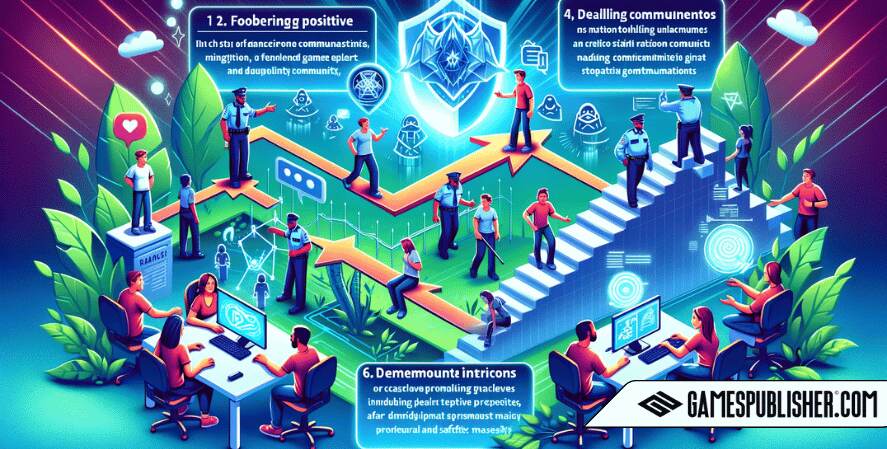
Fostering Positive Interactions
Encouraging positive interaction within the community is vital for its long-term success. Strategies such as promoting community events, spotlighting outstanding members, and facilitating discussions can enhance engagement and satisfaction.
Dealing with Challenges
Managing a community also involves handling issues like trolling, harassment, and conflict. Having a clear strategy for dealing with such challenges, including transparent disciplinary procedures, is crucial to maintaining a healthy community atmosphere.
Examples of Successful Game Communities
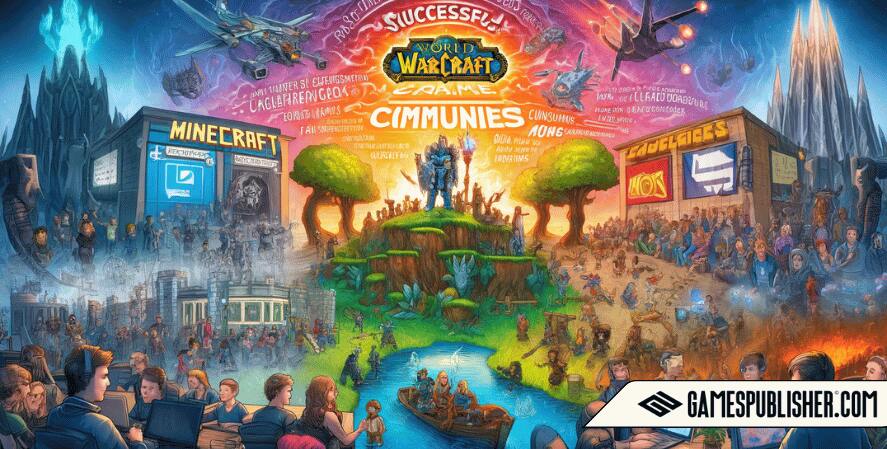
Three stellar examples of successful game communities are:
- World of Warcraft (WoW): This game has fostered an immensely successful community that extends beyond the game itself. The WoW community has been crucial in establishing a vast network of fan sites, forums, and has even sparked the creation of conventions such as BlizzCon. These elements collectively contribute to the game’s enduring popularity and deeply engaged fan base.
- Minecraft: Known for its open-ended gameplay, Minecraft supports a highly creative community that excels in producing user-generated content and modifications (mods). This engagement not only showcases the game’s versatility but also significantly enhances its appeal and longevity, making it a standout example of community-driven success in gaming.
- League of Legends: The LOL community is another powerhouse, known for its vibrant esports scene and fan participation in character development and game testing. This community has also been instrumental in shaping the game’s balance and new content, demonstrating the powerful role that a well-engaged community can play in a game’s development cycle.
Conclusion
The creation and management of game communities are pivotal in today’s gaming ecosystem. These communities not only improve the gaming experience for players but also provide developers with critical insights and a loyal fan base. Effective community management is thus not just beneficial but essential for the sustained success of both the community and the games it revolves around.
Loading survey...

